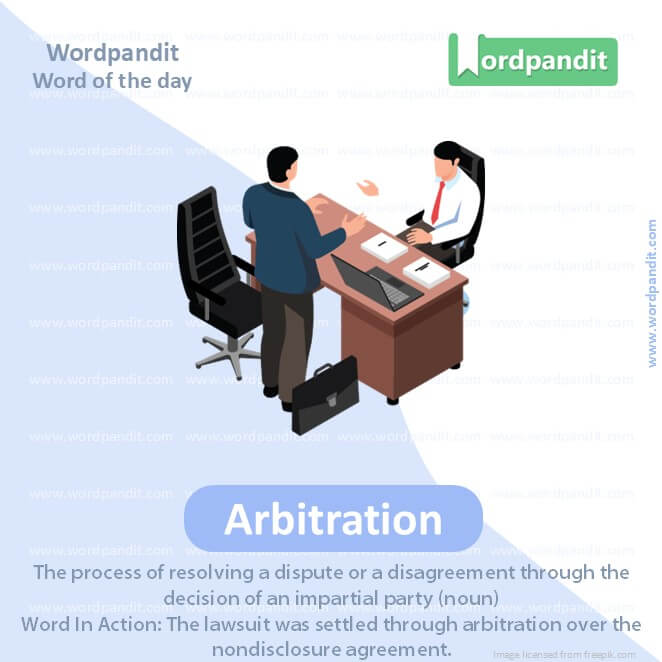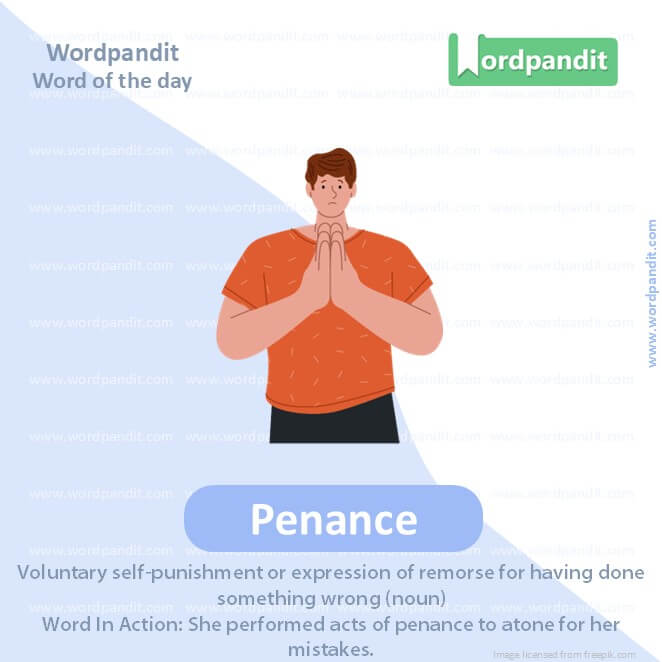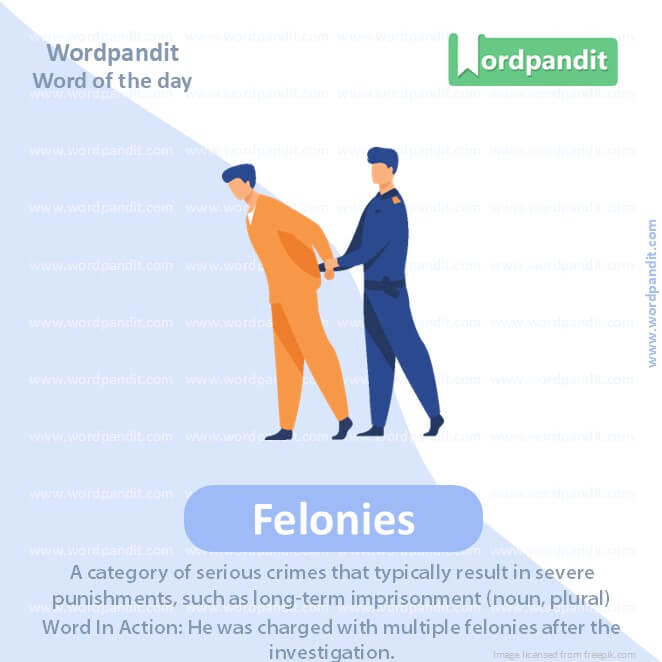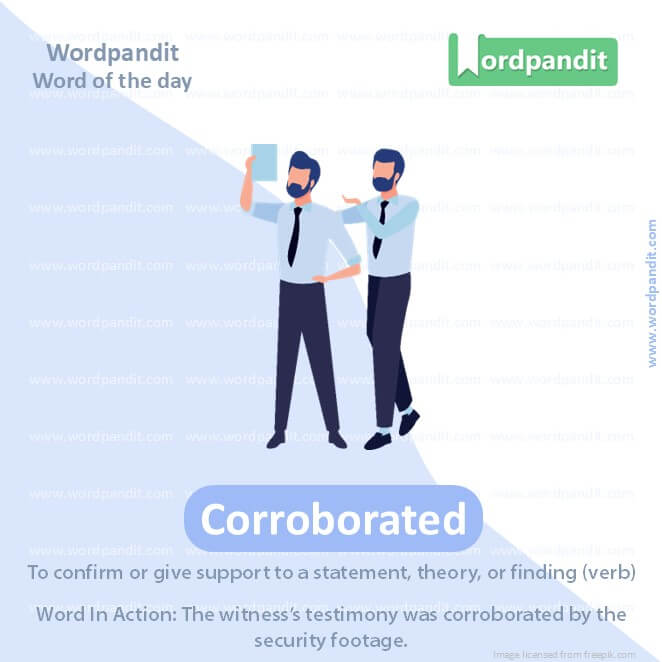Daily Vocabulary from International Newspapers and Publications
Expand Your Vocabulary with Wordpandit’s Global Vocabulary Hub
At Wordpandit, we are committed to helping you develop a truly global vocabulary by drawing from some of the most respected international publications. This section is designed to keep you ahead of the curve by introducing you to words that define global conversations and trends.
The Power of Global Sources
To help you think and communicate on a global scale, we curate vocabulary from renowned international sources, such as:
- The New York Times
- The Washington Post
- BBC
- The Guardian
- The Economist
- Scientific American
- Psychology Today
- And many more...
Stay Global, Stay Competitive
Our daily updates from international publications ensure you are consistently exposed to new words that reflect global news and developments, making sure your vocabulary is not only current but also globally relevant.
Enhance Your Global Perspective
Whether you’re preparing for international exams, aiming to excel in global business communication, or want to enhance your language skills for personal growth, Wordpandit offers the resources you need to thrive in a global context.
Effective Learning, Global Reach
Our learning methodology combines global examples, memory aids, and interactive activities, allowing you to internalize new words effectively and apply them in real-world scenarios.
Begin Your Global Vocabulary Journey Now!
Why Choose Wordpandit?
Practical Learning: Focus on words you'll actually encounter in real-world reading, enhancing your comprehension and communication skills.
Diverse Content: From current affairs to scientific breakthroughs, our varied sources expose you to vocabulary across multiple domains.
Effortless Integration: Make Wordpandit a part of your daily routine. Just a few minutes each day can significantly boost your lexicon over time.
Your Path to Vocabulary Mastery
- Visit our Daily Vocabulary section regularly
- Explore new words and their usage in context
- Practice incorporating these words into your own writing and speech
- Track your progress as your vocabulary expands
Start Your Journey Today
Embark on your vocabulary enhancement journey with Wordpandit. By consistently engaging with our daily posts, you'll build a robust vocabulary that serves you well in academic, professional, and personal contexts.
Remember, a word a day keeps linguistic limitations at bay. Make Wordpandit your daily companion in the quest for vocabulary excellence!
WORD-1: Arbitration
Context:
"The dispute was eventually settled through arbitration, avoiding a lengthy and costly court battle." - Business News Daily
Explanatory Paragraph:
Arbitration is a method of resolving disputes outside of the courts, where the parties involved agree to have an independent third party, called an arbitrator, make a decision that they are usually bound to follow. It's a faster and often more cost-effective alternative to litigation.
Meaning: The process of resolving a dispute or a disagreement through the decision of an impartial party (noun)
Pronunciation: ar-bih-TRAY-shuhn
Difficulty Level: ⭐⭐⭐ (Intermediate)
Etymology: From Latin arbitrare meaning "to give judgment"
Synonyms & Antonyms:
Synonyms: mediation, adjudication, conciliation, negotiation
Antonyms: conflict, litigation, dispute, disagreement
Usage Examples:
- Arbitration helped both sides reach an agreement without going to court.
- The arbitration process was smooth and both parties were satisfied with the outcome.
- They agreed to settle their contract dispute through arbitration instead of a legal suit.
- International companies often use arbitration to resolve cross-border disputes.
Cultural Reference:
"Arbitration is often the best way to avoid the courtroom and save time." - Business Insider
Think About It:
Why do you think arbitration is often preferred over litigation in business disputes?
Quick Activity:
Think of a disagreement you had in the past. How might it have been resolved through arbitration?
Memory Tip:
Remember "arbitration" by associating it with "arbitrator"—someone who listens and makes a judgment in a conflict.
Real-World Application:
Arbitration is commonly used in business, labor disputes, and international relations as a faster and less formal way to resolve conflicts.
WORD-2: Penance
Context:
"yet the lack of any reflection or penance by him and the fact that he seems so threaded into the fabric of our country." - The New York Times
Explanatory Paragraph:
Penance refers to actions or feelings of remorse or repentance for having done something wrong. It is often associated with acts that are meant to demonstrate a desire to make amends or seek forgiveness.
Meaning: Voluntary self-punishment or expression of remorse for having done something wrong (noun)
Pronunciation: PEN-uhns
Difficulty Level: ⭐⭐⭐ (Intermediate)
Etymology: From Old French penance, from Latin paenitentia meaning "repentance"
Synonyms & Antonyms:
Synonyms: atonement, remorse, contrition, repentance
Antonyms: impenitence, indifference, shamelessness
Usage Examples:
- As an act of penance, he volunteered at the shelter for months after causing the accident.
- She spent years in quiet penance, reflecting on her past mistakes.
- His public apology felt more like a formality than true penance for his actions.
- The act of penance helped her find peace and reconcile with those she had wronged.
Cultural Reference:
"In many religions, penance is seen as a way to cleanse the soul and seek forgiveness from a higher power." - Religious Studies Journal
Think About It:
What role does penance play in personal growth and reconciliation, and how might its absence affect relationships?
Quick Activity:
Write about a time when you had to make amends for a mistake. What act of penance did you perform, and how did it make you feel?
Memory Tip:
To remember "penance," think of "penalty"—a self-imposed punishment or action taken to make up for a wrong.
Real-World Application:
The concept of penance is important in many cultures and religions, but it can also be used in everyday life to describe acts of making up for past mistakes, either through actions or expressions of remorse.
WORD-3: Inextricable
Context:
"has become an inextricable part of their identities." - The New York Times
Explanatory Paragraph:
Inextricable refers to something that is so closely linked or intertwined that it cannot be separated or untangled. It suggests a bond or connection that is permanent or extremely difficult to break.
Meaning: Impossible to separate or disentangle (adjective)
Pronunciation: in-EK-stri-kuh-buhl
Difficulty Level: ⭐⭐⭐ (Advanced)
Etymology: From Latin inextricabilis, meaning "cannot be disentangled"
Synonyms & Antonyms:
Synonyms: inseparable, entangled, intertwined, indivisible
Antonyms: separable, detachable, distinct, disconnected
Usage Examples:
- His childhood memories were inextricable from the smell of his grandmother's cooking.
- Their lives were inextricably linked by a shared tragedy.
- The history of the town is inextricable from the rise of the local coal industry.
- The project became inextricably complex, with each issue tied to several others.
Cultural Reference:
"Our experiences are inextricably linked with who we are, shaping us in ways both subtle and profound." - Psychology Today
Think About It:
What aspects of your life or personality do you feel are inextricably linked to your past experiences?
Quick Activity:
Write about something in your life that is inextricably connected to your identity. Why is it so difficult to separate from who you are?
Memory Tip:
To remember "inextricable," think of something so tangled that you can’t "extract" one part from the other.
Real-World Application:
The word "inextricable" is often used to describe relationships, ideas, or issues that are so tightly connected that separating them would be impossible or counterproductive.
WORD-4: Felonies
Context:
"There are felonies to contend with, the end of Roe v. Wade." - The New York Times
Explanatory Paragraph:
Felonies are serious crimes that are punishable by imprisonment for more than one year or even death, depending on the legal system. They represent the most severe category of offenses and often have lasting legal consequences for those convicted.
Meaning: A category of serious crimes that typically result in severe punishments, such as long-term imprisonment (noun, plural)
Pronunciation: FEL-uh-neez
Difficulty Level: ⭐⭐⭐ (Intermediate)
Etymology: From Old French felonie, meaning "wickedness, crime," derived from Medieval Latin felonia
Synonyms & Antonyms:
Synonyms: crimes, offenses, violations, transgressions
Antonyms: innocence, legality, compliance, obedience
Usage Examples:
- He was charged with multiple felonies, including armed robbery and assault.
- The new law aimed to reduce the number of people incarcerated for nonviolent felonies.
- Conviction of a felony often carries a lifelong stigma, affecting employment opportunities.
- The police uncovered evidence linking him to several felonies across the state.
Cultural Reference:
"In the United States, felonies are considered the most serious category of crimes, leading to harsh penalties, including the death penalty in certain states." - Legal Studies Journal
Think About It:
Should there be a distinction in the legal consequences for violent and nonviolent felonies? Why or why not?
Quick Activity:
Research and list three examples of felonies in your country. What are the potential punishments for these crimes?
Memory Tip:
To remember "felonies," think of the word "felon" and its association with serious crimes.
Real-World Application:
The term "felony" is important in legal discussions, as it differentiates more serious crimes from less severe ones, impacting legal proceedings, punishments, and societal views on crime.
WORD-5: Corroborated
Context:
"How was the public supposed to understand whether stories were corroborated by journalists?" - The New York Times
Explanatory Paragraph:
Corroborated refers to the act of confirming or supporting a statement, theory, or finding with additional evidence. When something is corroborated, it means that multiple sources or pieces of evidence agree, making the information more reliable.
Meaning: To confirm or give support to a statement, theory, or finding (verb)
Pronunciation: kuh-ROB-uh-ray-ted
Difficulty Level: ⭐⭐⭐ (Intermediate)
Etymology: From Latin corroboratus, meaning "strengthened," from roborare meaning "to make strong"
Synonyms & Antonyms:
Synonyms: confirm, validate, substantiate, authenticate, verify
Antonyms: contradict, refute, disprove, invalidate, negate
Usage Examples:
- The witness's testimony was corroborated by video evidence from the scene.
- Before publishing the report, the journalists ensured that all claims were corroborated by reliable sources.
- The police sought additional evidence to corroborate the suspect's alibi.
- Her account of the events was corroborated by several other eyewitnesses.
Cultural Reference:
"Corroborating evidence is a key element in both legal and journalistic standards, ensuring the accuracy and reliability of information." - Media Ethics Quarterly
Think About It:
Why is it important for journalists to corroborate their sources? How does this affect public trust?
Quick Activity:
Think of a time when you had to verify information from multiple sources. How did corroborating the details help ensure accuracy?
Memory Tip:
To remember "corroborated," think of "corroborate" as strengthening a claim by bringing in more "robust" evidence.
Real-World Application:
In journalism, law, and everyday decision-making, corroboration is essential for ensuring that information is reliable and trustworthy. It helps prevent the spread of false or misleading claims.


















